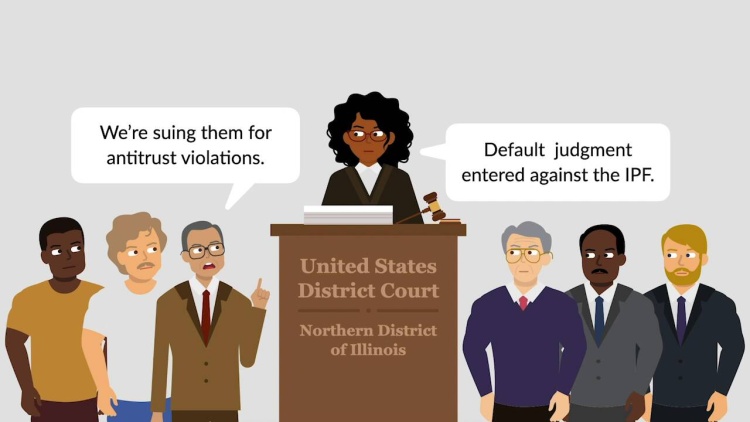Frantz v. U.S. Powerlifting Fed'n
United States Court of Appeals for the Seventh Circuit
836 F.2d 1063 (1987)
- Written by Alexis Tsotakos, JD
Facts
Two weight lifters, including Frantz (plaintiff), brought suit against the International Powerlifting Federation (IPF), the United States Powerlifting Federation (USPF), and Conrad Cotter, president of the USPF, alleging that the organizations were engaged in anticompetitive activities. The weightlifters claimed that they had been disqualified from participating in IPF events because they had previously competed in events sponsored by the American Powerlifting Federation (APF). The IPF did not file an appearance, so a default judgment was filed against it, and the complaint was dismissed against the remaining two defendants on a 12(b)(6) motion. Frantz filed an amended complaint against the USPF, dropping Cotter as a defendant, and the case was again dismissed on a 12(b)(6) motion. The court held that, under Rule 11, Cotter was entitled to attorneys’ fees for the cost of defending Frantz’s claims. However, the court held the USPF was not entitled to fees because the plaintiffs had a colorable claim against the USPF. Cotter’s request for fees totaled $44,700, $40,400 of which was incurred preparing the request for fees. The amount in fees so shocked the district judge that he vacated Cotter’s award of attorneys fees, noting that the issues involved in the case must have been more complicated than the court had previously recognized. Cotter appealed this holding, and USPF appealed the trial court’s determination that it was not entitled to any attorneys’ fees.
Rule of Law
Issue
Holding and Reasoning (Easterbrook, J.)
What to do next…
Here's why 907,000 law students have relied on our case briefs:
- Written by law professors and practitioners, not other law students. 47,100 briefs, keyed to 996 casebooks. Top-notch customer support.
- The right amount of information, includes the facts, issues, rule of law, holding and reasoning, and any concurrences and dissents.
- Access in your classes, works on your mobile and tablet. Massive library of related video lessons and high quality multiple-choice questions.
- Easy to use, uniform format for every case brief. Written in plain English, not in legalese. Our briefs summarize and simplify; they don’t just repeat the court’s language.





